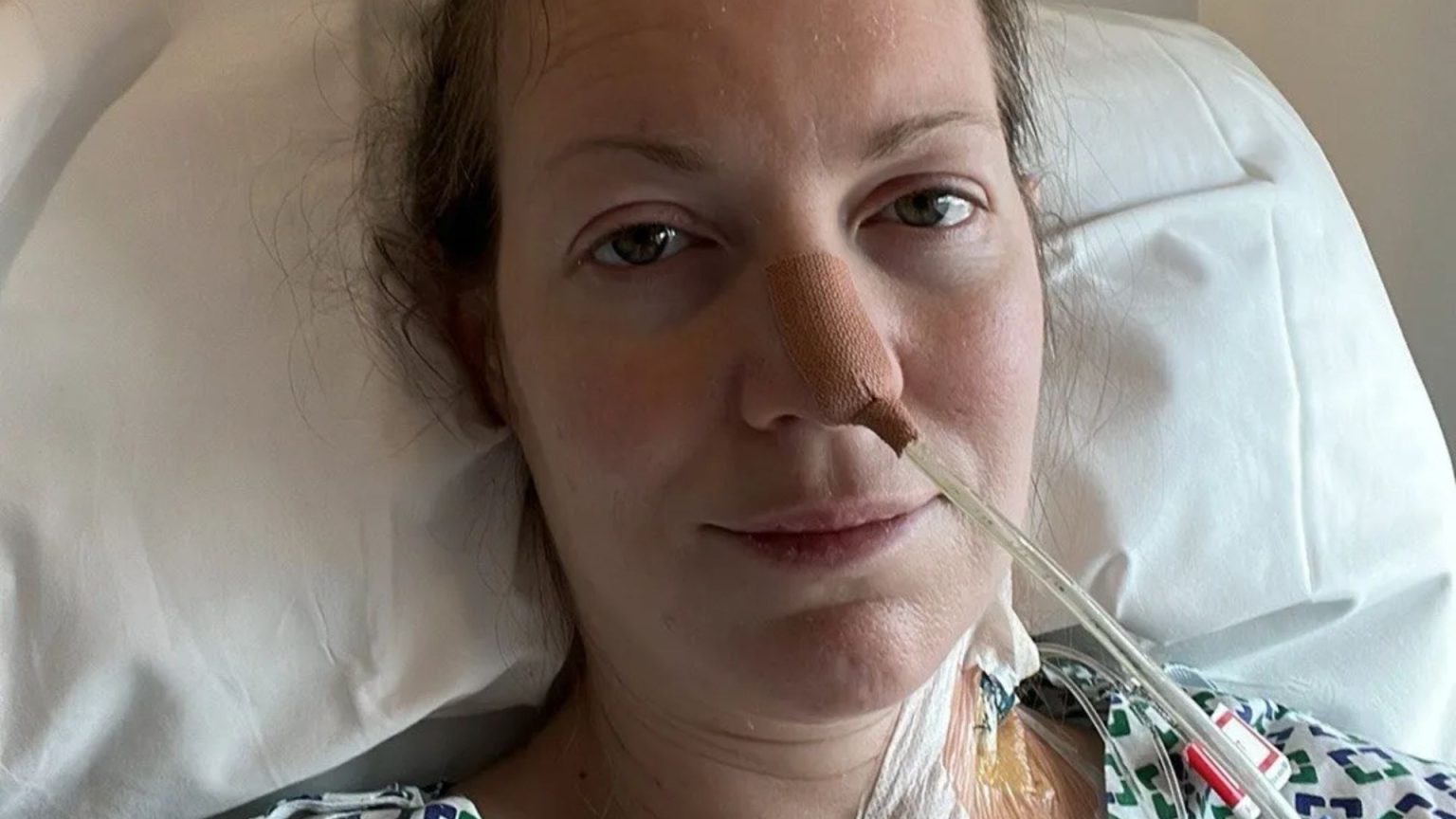Zoe Gardner-Lawson’s journey began with a seemingly innocuous back pain in August 2024. Initially dismissed as a urinary tract infection (UTI) by her general practitioner, Zoe was prescribed antibiotics. However, the pain persisted and intensified, spreading to her abdomen and leaving her bedridden. Despite multiple consultations and antibiotic courses, her condition continued to deteriorate. Concerned by the lack of improvement, Zoe’s GP advised her to seek immediate attention at the emergency room. Initial examinations pointed towards kidney stones, but a CT scan revealed a more alarming truth: a two-inch tumor residing on her bowel. This discovery marked the beginning of Zoe’s battle against stage four bowel cancer.
Further investigations revealed the aggressive nature of Zoe’s cancer. The tumor had perforated her bowel, leading to fluid accumulation in her abdomen. Moreover, the cancer had metastasized, spreading to her liver, peritoneum, and stomach lymph nodes. The diagnosis was a devastating blow for the 36-year-old HR head of department and mother of three. Faced with this daunting reality, Zoe was transferred to the Cleveland Clinic in London for specialized care under the guidance of Professor Jamie Murphy. Professor Murphy outlined a treatment plan that involved immediate surgery to remove the bowel tumor, address the fluid and waste leakage, and reassess the situation.
Zoe underwent a four-hour surgery on October 3rd, 2024. A biopsy of the removed tumor confirmed it to be a cancerous blastoma. The aggressive nature of the cancer necessitated a tripled chemotherapy dosage. Zoe bravely endured the intense chemotherapy regimen, completing five out of eight prescribed rounds. Alongside conventional treatment, she embraced complementary therapies such as IV vitamin C infusions, mistletoe injections, and a strict diet and exercise regime, demonstrating her determination to fight the disease with every available resource. Zoe’s proactive approach reflected her unwavering hope and commitment to maximizing her chances of recovery.
Zoe’s experience highlighted a critical issue in bowel cancer screening. She believes that if she had been offered a Faecal Immunochemical Test (FIT) earlier, the cancer might have been detected at a much earlier, more treatable stage. FITs are currently offered every two years to individuals aged 54 to 74 in the UK, with plans to lower the age to 50. However, Zoe advocates for a further reduction in the screening age to at least 30, if not 25, arguing that early detection is crucial for improving outcomes. Her personal battle underscores the importance of accessible and timely screening for this often silent but deadly disease.
At the time of the report, Zoe’s prognosis remained uncertain. Doctors were closely monitoring her response to chemotherapy, hoping for significant tumor shrinkage. Following her sixth round of chemotherapy, a second surgery was planned to remove the remaining stomach lymph nodes and two liver tumors, contingent on a positive response to the initial treatment. Zoe’s journey is a testament to her resilience and determination. Her advocacy for early screening, born from her own harrowing experience, carries a powerful message about the importance of proactive healthcare and the potential to save lives through early intervention.
Meanwhile, the article highlights the broader context of bowel cancer, emphasizing its prevalence as the fourth most common cancer and the second deadliest in the UK. It stresses the importance of early detection for successful treatment and cure. While screening plays a crucial role, the article also emphasizes the significance of recognizing the symptoms of bowel cancer. These include bleeding from the back passage, changes in bowel habits, abdominal pain or lumps, extreme tiredness, and weight loss. Other less common but still important symptoms include gripping abdominal pains, bloating, constipation, vomiting, and a persistent feeling of needing to strain. The article urges individuals experiencing any of these symptoms to consult their doctor without hesitation or embarrassment, highlighting the potential life-saving impact of early diagnosis.




